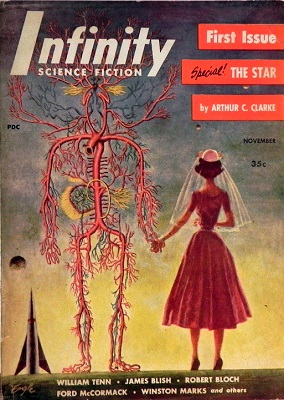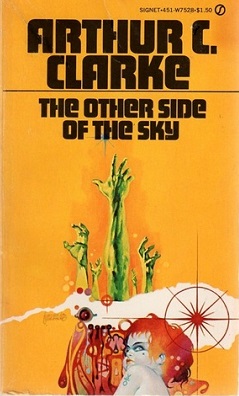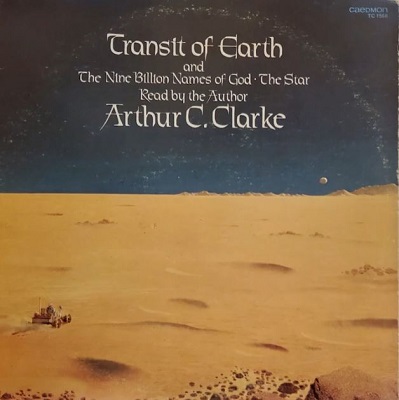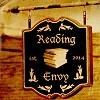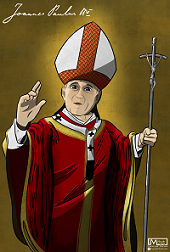“The Star” by Arthur C. Clarke
Originally appeared in the November 1955 issue of Infinity Science Fiction
Hugo Award for Best Short Story, 1956
Collected in “The Other Side of the Sky”, 1958
In a recent editorial meeting, the sizable staff here at “Light-Years from the Vatican” unanimously insisted that I write a bit about “The Star” by Arthur C. Clarke, the story that both inspired the name of this blog and the one I have most often called my favorite science fiction short story.
I once told a fellow Catholic science fiction reader that “The Star” was a favorite and he actually winced. “The Star”, after all, is a story written by an atheist about a Jesuit who has lost his faith due to Science. Surely that’s a win for the opposing team.
Apart from the fact the I don’t see science and Catholicism as being on opposing teams (and no one else should either, especially Catholics), there are reasons why “The Star” is a great story. Spoilers abound below, but it’s a very short story (5 pages). You can read it HERE or Arthur C. Clarke himself will read it to you on YouTube.
Reason 1: Catholics exist 1,000 years in the future.
The opening line of the story is “It is three thousand light-years to the Vatican.” This line, coupled with the last line in the story, tells us that the setting is around 1000 years in the future. A Jesuit chief astrophysicist is part of a crew that just visited the Phoenix Nebula.
This may have been the first story in which I encountered a member of a Catholic Church I recognized in the future. He even put a crucifix on the cabin wall above his Mark VI computer. Which I’m guessing is a Mac.
Reason 2: Science!
The science in this story is excellent and holds up today even though the story was written in 1955. “The Star” contains talk about nebulae, supernovas, and space travel, along with a possible alien race, a distant rocky planet like our Pluto, and raised questions about what is truly important to a culture… all in FIVE PAGES.
Reason 3: Clarke is not unfair to Christians anywhere in this story.
The fact that there’s a Jesuit on board a scientific mission with crewmembers that aren’t Catholic means interesting conversations. Clarke notes this and shows a deep understanding of these conversations and how they work in a peaceful environment. Of the crewmembers, our Jesuit narrator says:
Few of them have any religious faith, yet they will not relish using this final weapon in their campaign against me – that private, good-natured but fundamentally serious war which lasted all the way from Earth.
Clarke accurate describes my life in that sentence, in every arena in which people I interact with know (1) that I’m Catholic, and (2) that I’m open to such conversations. Clarke notes that atheists want to have these conversations a LOT, and that the “good-natured but fundamentally serious” are the only kind worth having in any kind of a we’re-all-stuck-on-this-ship-together situation.
The “final weapon” for the atheists in that story quote is revealed at the end: an entire civilization was destroyed by a supernova which shined over Bethlehem to herald the birth of Jesus on the planet Earth. I’ve met people that have been profoundly affected by this reveal, both Christian and atheist. Even though the supernova event in the story is fiction, an atheist commenter once said that this story “proves” atheism. And it even troubles Christians sometimes.
It opens up thought (for certain) and discussion (if one is lucky), as great stories do. A Christian should be reminded first that this story is a thought experiment, and second that it is an extreme presentation of something difficult but common that every Christian must answer: The Problem of Evil. If God is omnipotent, benevolent, and omniscient, then why are there hurricanes? Tornadoes? Supernovae that destroy entire worlds? Is God willing to prevent these things, but not able? Is He able but not willing? All mature Christians have struggled with this question already.
“The Star” remains a favorite. I don’t recall the first time I read this story. It’s like it’s always been in my memory and I re-read it or listen to it occasionally. I suspect that the first time I encountered this story was on audio. I was 10 years old when Caedmon released a recording of Arthur C. Clarke reading “Transit of Earth”, “The Nine Billion Names of God”, and “The Star”. I know for certain that I checked that album out at the library and listened to it many times.
Another interesting tidbit on “The Star” is that it was adapted for TV in a Christmas episode of the revived Twilight Zone in 1985. It has a slightly different ending. Wikipedia says:
The episode’s screenwriter, Alan Brennert, later commented that “Over the years I’ve taken a little bit of heat from certain fans in the science fiction community for changing the ending of this story. I actually maintain that the ending as it is in this episode is implicit in the story and is not really at odds with the kind of metaphysical work that Clarke did in Childhood’s End.”
Which is odd because this story isn’t Childhood’s End. But here’s that episode, below.

